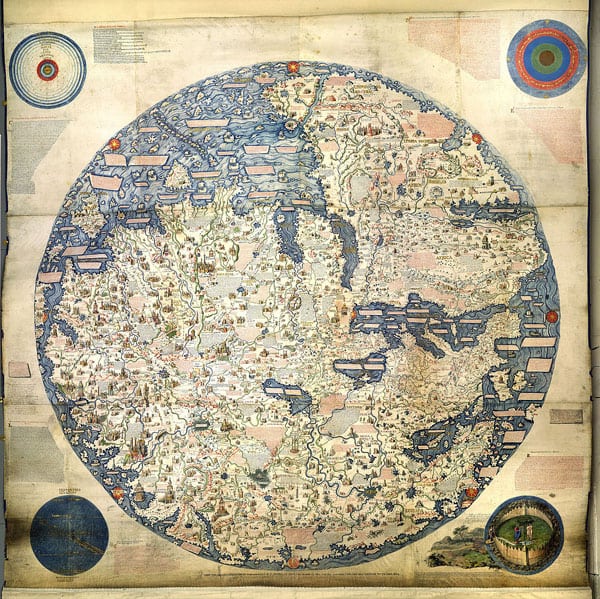
June 15, 2018; Washington Post
“Since 2002, the AP World History course has covered thousands of years of human activity around the planet, starting 10,000 years back. But now the College Board, a nonprofit which owns the Advanced Placement program, wants to cut out most of that history and start the course at the year 1450,” writes Valerie Strauss in the Washington Post. An updated course and exam description, Strauss adds, will be made available for the 2019–2020 school year.
According to Zachary Goldberg, a College Board spokesperson, the previous course content was simply too broad. The more than 9,000 years excised from AP World History will instead be put into a new series of courses called Pre-AP World History and Geography.
“The problem was identified years ago,” says Goldberg. “Working with educators, we have attempted to address the issue through professional development, more practice questions, and clearer exam guidelines. Yet nothing has changed in terms of student performance—students are not learning even the basic concepts of the course, let alone developing a strong understanding of cultures around the world.”
This may seem arcane; why should NPQ readers care whether college-bound high school students have their “world history” course start 10,000 years ago or less than 600 years ago? Then again, as NPQ has noted frequently, what we learn about the past does inform the present. This is why changes like the development of a new generation of museums and memorials highlighting the Black experience in the United States are so important.
As for AP World History, you might also ask yourself, “Why begin in 1450?” The answer becomes obvious immediately: While different people divide up history differently, 1450 is a common date given for the start of the European Renaissance. Johannes Gutenberg printed his first bible shortly after that date. Now, Gutenberg hardly invented printing. As the History Channel notes in their description of Gutenberg, “Chinese artisans were pressing ink onto paper as early as the second century A.D., and by the 800s, they had produced full-length books using wooden block printing.” But you might not learn that if your history class begins in 1450.
Which is the problem, of course.
Sign up for our free newsletters
Subscribe to NPQ's newsletters to have our top stories delivered directly to your inbox.
By signing up, you agree to our privacy policy and terms of use, and to receive messages from NPQ and our partners.
Many teachers are not pleased. As Benjamin Wermund writes in Politico, “High school history teachers are in revolt over the alteration of a widely taught Advanced Placement course that they say threatens to present a skewed, Eurocentric history of the world to thousands of students.”
Wermund adds, “Under the controversial changes, a popular AP World History course would begin in 1450—essentially the rise of European power—effectively eliminating instruction on pre-colonial Africa, Asia, Americas and the Middle East. Earlier eras would be relegated to a pre-AP course that isn’t tested.”
Sameer Rao, writing for Colorlines, observes that, “Advanced civilizations flourished throughout Africa, Asia and the Americas well before Europe escaped the Dark Ages and colonized parts of the world. Yet the College Board, the nonprofit that administers Advanced Placement (AP) classes, has now made a decision to remove these civilizations from the curriculum of AP world history courses.”
Tyler George, who teaches AP World History in Clinton, Michigan, explains that for him, what is critical is that students “understand that there was a beautiful, vast and engaging world before Europeans ‘discovered’ it. Students need guidance and knowledge of the past to understand that when they hear ‘Africa’ they shouldn’t immediately think ‘slavery.’”
Oakland, California high school student Noah Mitchell adds, “It would be cutting down so many people’s different histories—like Asian history before imperialism, American history before Columbus and African history before slavery. Really, the message that this would be sending is that their histories don’t really matter.”
Of course, learning 10,000 years of history does require more than a year. But then, so does 500 years. Selecting key themes that resonate with the broad sweep of human history, rather than cramming down facts, is the only workable approach, no matter where you set the goalposts.
As for the AP World History curriculum, it is not fully settled yet. Following a public forum in Salt Lake City in which a number of speakers raised questions about the change, Trevor Packer, senior vice president of Advanced Placement and instruction at the College Board, has indicated that the plan could still shift again. According to Packer, “constructive feedback…has suggested a path forward that will enable us to achieve several priorities that I believe we share and can agree on.” Packer has said the College Board will announce its final plans in July.—Steve Dubb












